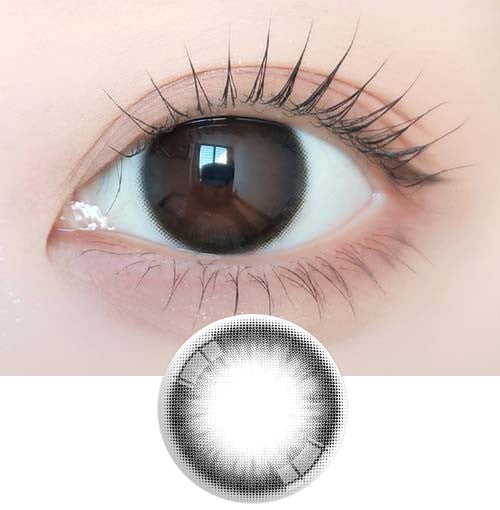How to take care of your eyes
•Posted on June 28 2024

The eyes are the windows to the world, so it is very important to take good care of them. Regular visits to the eye doctor, getting enough sleep, and taking breaks when using the computer are habits that help keep your eyes healthy. If you have vision problems, it is best to see an optometrist as soon as possible. Let's learn how to keep your eyes healthy through this article.
Developing Good Eye Care Habits

1.Visit Eye Care Institutions Regularly.
- If you have no significant vision problems, it is recommended to have an eye exam every 5 to 10 years in your 20s and 30s.
- In the same situation, it is recommended to have an eye exam every 2 to 4 years from ages 40 to 65.
- If you are over 65, you should have an eye exam every 1 to 2 years.
2.At the End of the Day, Always Remove Your Contact Lenses
Remove your contact lenses at the end of the day. Do not wear your lenses for more than 19 hours. Wearing them for too long can cause severe discomfort and even permanent vision loss.
- Never sleep with your contact lenses on unless directed by your doctor. Your eyes need a regular supply of oxygen, which contact lenses can block, especially during sleep. Most doctors recommend removing your lenses at night to give your eyes a rest.
- Never swim with your contact lenses on unless you have tight-fitting goggles. If needed, use prescription goggles. When showering, it is also advisable to remove your lenses to avoid soap or shampoo getting into your eyes.
- Follow the manufacturer's instructions and the advice of your eye care professional when using contact lenses and lens solution. One crucial point is to always wash your hands before handling contact lenses.

3.Always Remove Makeup Before Ending the Day
Take time to remove your makeup before going to bed. Never sleep with your makeup on. Sleeping with mascara or eyeliner can cause them to enter your eyes and cause irritation.
- Sleeping with eye makeup on can also block the pores around your eyes, potentially leading to styes. In severe cases, you might need antibiotics or minor surgery to treat them.
- Keep makeup remover pads by your bedside for those times when you are too tired to remove your makeup as usual.

4.Use allergy eye drops occasionally.
During seasons when allergies are prevalent, these drops can help relieve red and itchy eyes. However, be cautious not to use them daily, as this can worsen symptoms. Overuse can lead to a condition called rebound hyperemia, where your eyes become excessively red and unresponsive to the drops.
- Allergy eye drops work by constricting blood flow to the cornea, reducing oxygen supply. While this stops redness and itching, it also means your eyes are not getting enough oxygen. Adequate oxygen is essential for the proper functioning of eye muscles and tissues. Lack of oxygen can cause swelling or injury to your eyes.
- If you wear contact lenses, always read the label on eye drops carefully. Most drops are not suitable for use with contact lenses. Consult your eye doctor about eye drops that are safe to use while wearing lenses.

5.Wear UV-Blocking Sunglasses
Always wear sunglasses when you go outside, especially when the sunlight is intense. Look for sunglasses labeled as blocking 99% or 100% of UVB and UVA rays.
- Continuous exposure to UV rays is harmful to your vision. Taking precautions while you are young can help prevent vision loss later in life. UV exposure can lead to conditions such as cataracts, macular degeneration, pinguecula, and pterygium.
- The damage from UV rays accumulates over time, so it’s important to protect children from harmful ultraviolet light. Ensure children wear hats and protective eyewear when spending extended periods outdoors.
- Wear sunglasses even in the shade. Although being in the shade significantly reduces exposure to UV and HEV rays, UV rays can still be reflected off buildings or other structures and reach your eyes.
- Even with UV-blocking sunglasses, avoid looking directly at the sun. Sunlight is so powerful that direct exposure can damage the most sensitive part of the retina.

6.Wear Goggles When Possible
Wear goggles whenever you work with chemicals, power tools, or in environments with harmful airborne particles. This is essential to protect your eyes from harmful and injurious substances, both large and small. Proper eye protection can prevent injuries and keep your eyes safe from damage caused by various hazardous materials.

7.Get Enough Sleep
Ensure you get enough sleep. Lack of sufficient sleep can easily cause eye fatigue. Signs of eye fatigue include eye irritation, decreased concentration, dryness or excessive tearing, blurriness or double vision, light sensitivity, and pain in the neck, shoulders, or back. To reduce eye strain, aim for adequate sleep every night.

8.Exercise Regularly
Regular exercise helps prevent diseases such as diabetes. Exercising for at least 30 minutes, three times a week, can lower the risk of serious eye-related diseases such as glaucoma and macular degeneration.

9.Reduce Eye Swelling with Cucumber Slices
Place sliced cucumbers on your eyelids to reduce swelling. If your eyelids and the area under your eyes are swollen, place cold cucumber slices on your eyelids before bed and press gently for 10 to 15 minutes.
Green tea bags can also help reduce eye swelling. Steep the tea bags in cold water for a few minutes, then place them on your eyes for 15 to 20 minutes. The tannins in the tea have an excellent anti-inflammatory effect.
Protecting Your Eyes While Using the Computer

1.Try to limit the time you spend looking at computers, laptops, and smartphones.
Although it hasn't been scientifically proven that looking at computer screens causes permanent eye damage, it does cause eye strain and dryness. The light from computer screens can be too bright or too dark, which tires the eye muscles. If you can't reduce your screen time, there are several ways to give your eyes a break:

2.Align Your Eyes and Screen at the Same Height
Adjust your computer screen so that it is at the same height as your eyes. Looking up or down at a screen for extended periods can cause additional eye strain. Therefore, position your computer and your eyes at the same level to ensure you are looking straight ahead at the screen.
3.Remember to Blink
People tend to blink less when looking at screens, which can make the eyes dry. To prevent dryness, consciously make an effort to blink for 30 seconds while sitting and looking at the computer screen. This will help keep your eyes moist.

4.Take Breaks to Relax Your Eyes
If you have been reading a book or working on your smartphone or computer for over an hour, take about 5 minutes to look at something far away to relax your eye focus. (If 5 minutes feels too long, even 1-2 minutes will help!)

5.Work in a Well-Lit Area
Working or reading in a dark environment won't harm your eyes, but it can cause eye strain. To keep your eyes comfortable, it's best to work in a bright area with plenty of natural or artificial light. If your eyes feel tired, take a break and rest for a while.
Dietary Habits for Healthy Eyes

1.Consume Foods That Are Good for Eye Health
Essential nutrients for eye health include vitamins C and E, lutein, zeaxanthin, and omega-3 fatty acids, carrots, avocados, cassia seeds, cheese and so on. These nutrients help prevent cataracts, blurry vision from lens clouding, and age-related vision loss.
- A generally healthy and well-balanced diet also greatly benefits your eyes.

2.Eat Foods Rich in Vitamin E
Include seeds, nuts, wheat germ, and vegetable oils in your diet. These foods are rich in vitamin E, and consuming them daily can have the same benefits as taking a daily vitamin E supplement.

3.Eat Foods Rich in Zinc
Include beef, pork, shellfish, peanuts, and legumes in your diet. These foods are rich in zinc and are very beneficial for eye health.

4.Eat Foods Rich in Vitamin C
Include oranges, strawberries, broccoli, bell peppers, and cabbage in your diet. These foods are rich in vitamin C and are very beneficial for eye health.

5.Consume Foods Rich in Lutein and Zeaxanthin
Eat kale, spinach, broccoli, and peas. These vegetables are rich in lutein and zeaxanthin, which are essential for eye health.

6.Eat Carrots
Eat carrots. Consuming carrots can improve your vision.

7.Eat Foods Rich in Omega-3 Fatty Acids
Eat foods rich in omega-3 fatty acids. Try to include fish dishes such as salmon or sardines in your diet once or twice a week. If you don't like fish, consider taking omega-3 supplements instead.
Tips
- Avoid direct sunlight.
- Drink plenty of water and eat vegetables and carrots.
- Get 7 to 8 hours of sleep each night to prevent vision problems and maintain overall health.
- If you have chronic conditions such as diabetes or high blood pressure, consult with an eye doctor. Diabetic patients need to regularly check and manage their blood sugar levels due to the lack of insulin.
- Always wash your hands before handling contact lenses.
- Do not use eye drops if they do not suit you. Remember that while eye drops can be beneficial, their medical effectiveness is not always proven. If you have any doubts, consult your pharmacist or eye doctor.
- In addition to eating well and taking care of yourself and your eyes, get an annual eye exam. An eye doctor can provide information on glasses, lenses, surgery, and eye-related diseases. They will also check for dry eyes, retinal diseases, and overall conditions related to diabetes or high blood pressure.
- Wear goggles when swimming.









